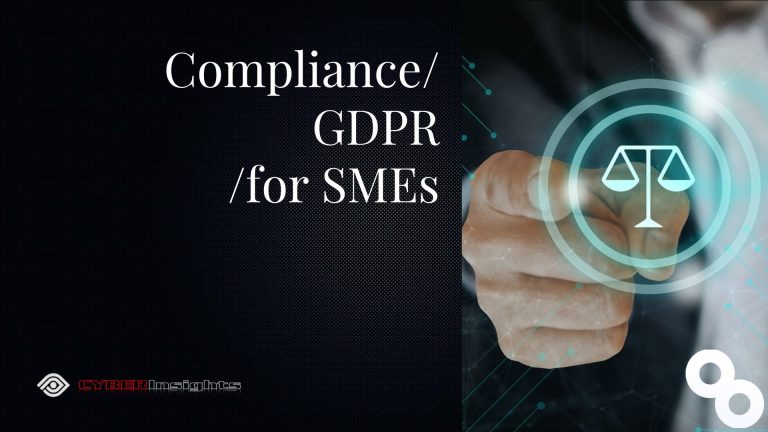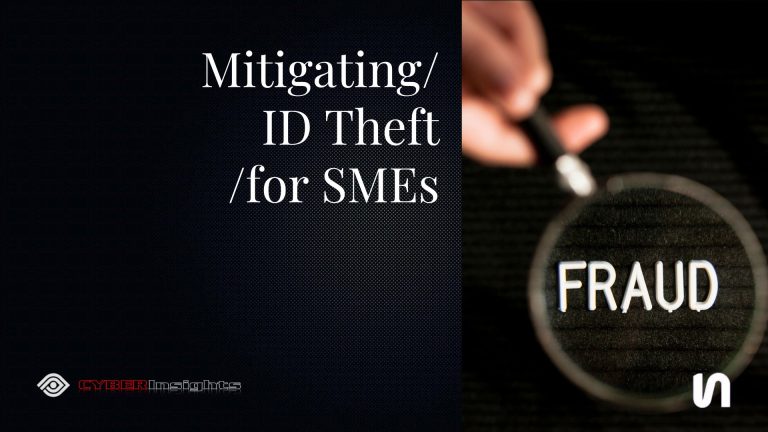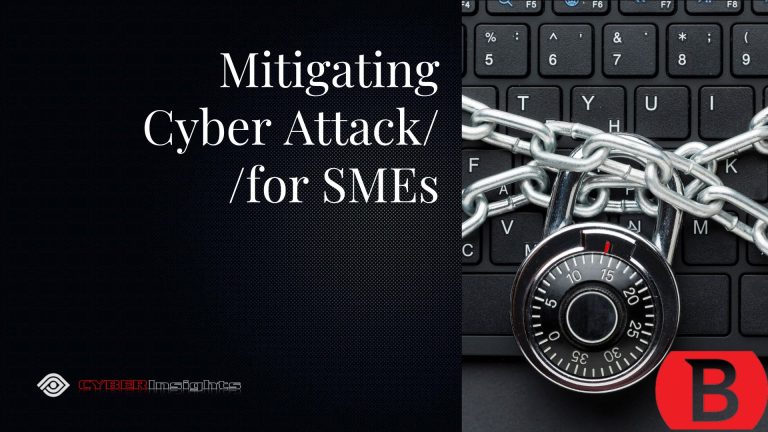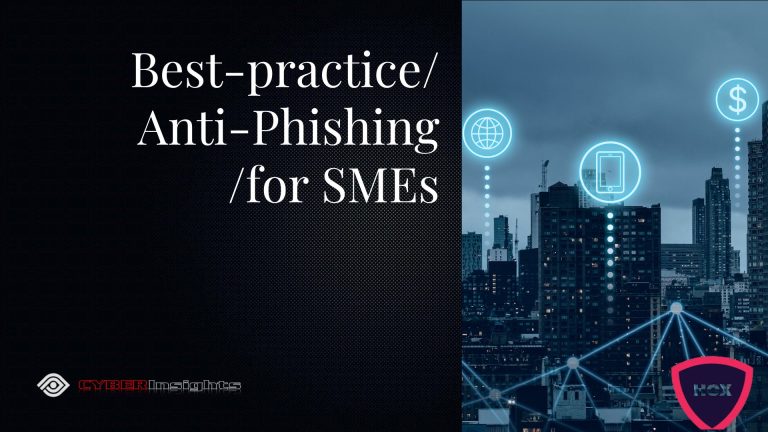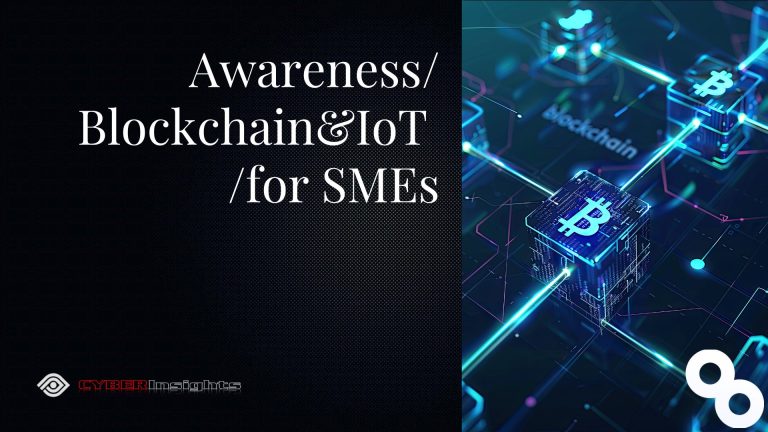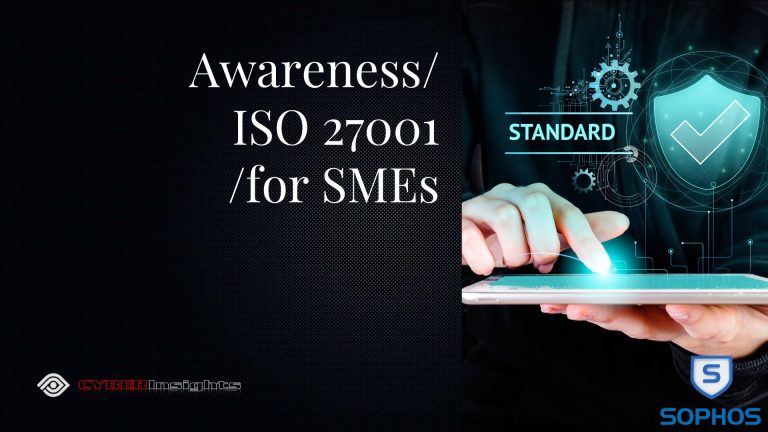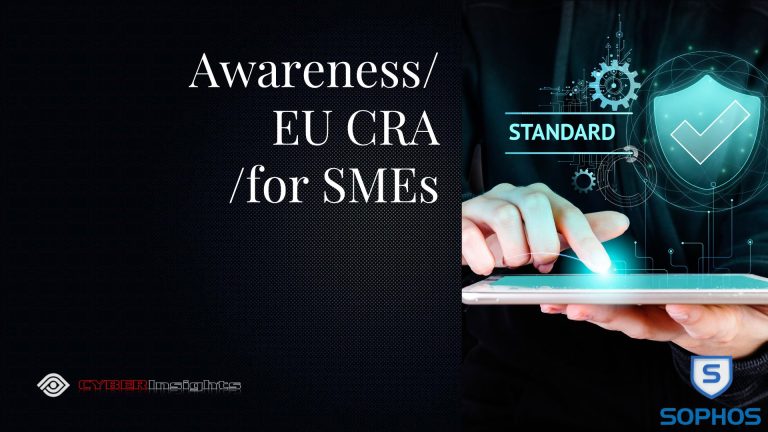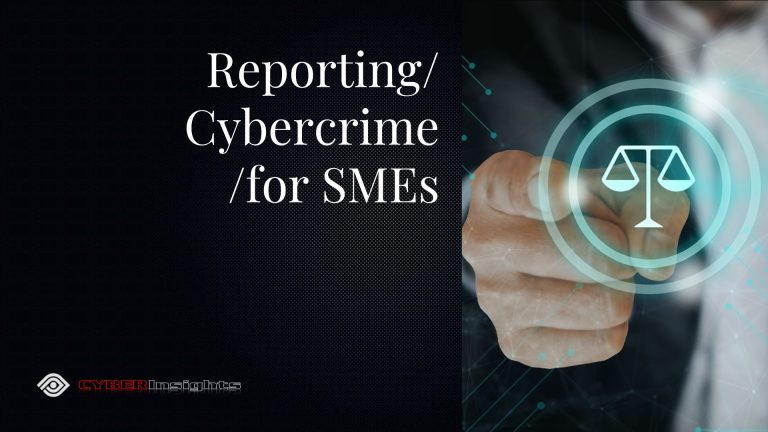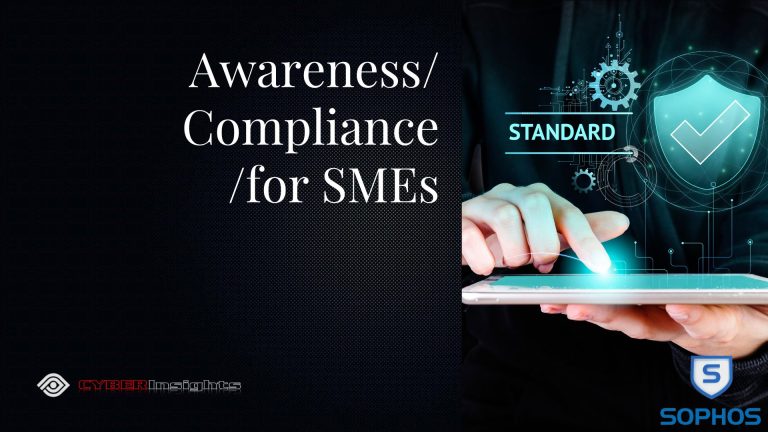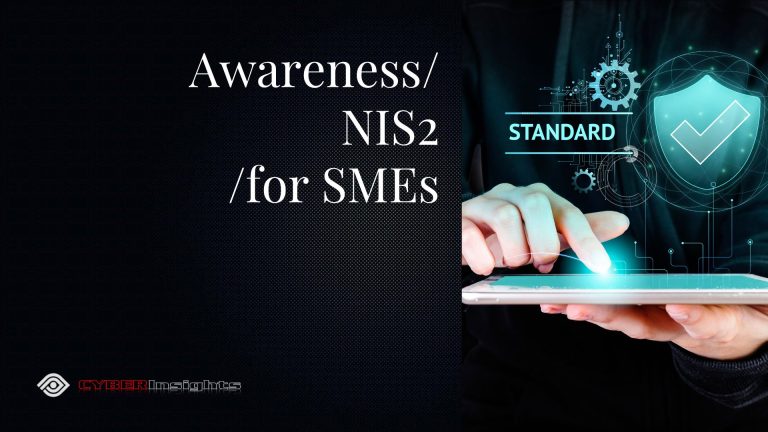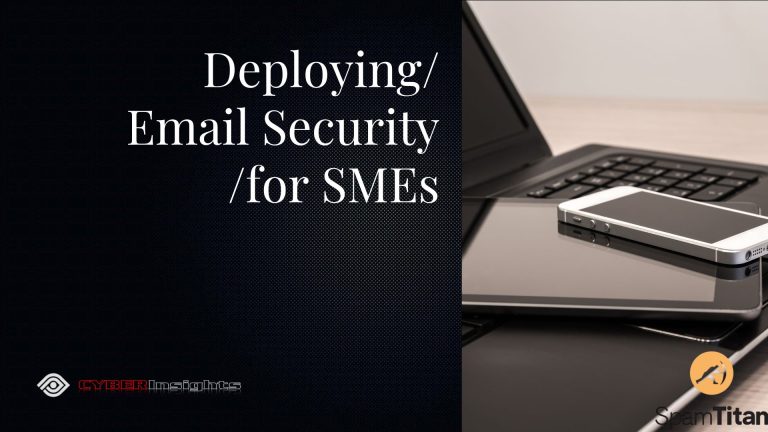CYBER AWARENESS: ISO 27001 Strengthening Information Security for UK Small Businesses
October 2, 2024ISO 27001: Strengthening Information Security for UK Small Businesses. This article explains the ISO 27001 protocol, why it exists, its primary functions, and outlines the benefits for UK Small Businesses. It also provides a brief overview of the certification process and how to proceed.
In today’s digital age, where data breaches, cyberattacks, and information theft are becoming increasingly common, businesses of all sizes need robust systems to protect their sensitive information. ISO 27001, an internationally recognized standard for information security management, provides a comprehensive framework to help businesses manage their data securely and mitigate the risks of cyber threats. For UK Small Businesses, achieving ISO 27001 certification can be a game changer, demonstrating a commitment to high standards of data protection and enhancing customer trust.
What is ISO 27001?
ISO/IEC 27001 is an international standard that specifies the requirements for establishing, implementing, maintaining, and continually improving an Information Security Management System (ISMS). An ISMS is a systematic approach to managing sensitive company information so that it remains secure. It includes people, processes, and IT systems by applying a risk management process.
The standard is part of the ISO/IEC 27000 family, which covers a wide range of guidelines for managing information security. ISO 27001 is the central standard and provides the foundation for an organization’s entire approach to information security.
Why Does ISO 27001 Exist?
ISO 27001 was developed to address the growing challenges related to information security in businesses. As more companies shift operations online and rely on digital tools for data storage and communication, the need for standardized security measures has become paramount. The key reasons for the existence of ISO 27001 are:
Risk Mitigation: ISO 27001 provides a risk-based approach to managing security, helping businesses identify potential vulnerabilities and implement controls to mitigate those risks.
Compliance: Many industries are subject to data protection regulations such as GDPR (General Data Protection Regulation). ISO 27001 helps organizations meet these legal requirements by providing a structured security framework.
Customer Trust and Competitive Advantage: Certification demonstrates to customers, partners, and stakeholders that a business takes information security seriously, which can lead to increased trust and better business opportunities.
Continual Improvement: ISO 27001 encourages businesses to regularly review and improve their information security practices, ensuring they remain effective against evolving cyber threats.
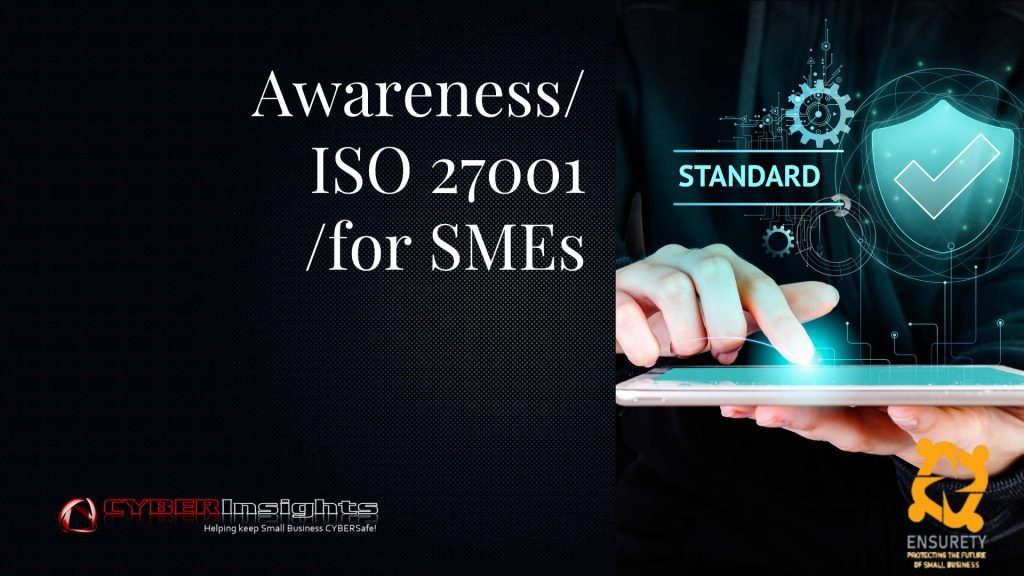
The Primary Function of ISO 27001
The main function of ISO 27001 is to establish a systematic approach to managing and securing sensitive information within an organization. The standard provides businesses with:
A risk management framework: ISO 27001 requires businesses to identify information security risks and implement controls to mitigate them.
Policies and procedures: Organizations must develop and enforce policies for handling, storing, and processing sensitive information.
A culture of security awareness: ISO 27001 fosters a culture of security by involving employees in security practices and ensuring they understand their role in protecting information.
Continuous improvement: Businesses are encouraged to regularly audit and improve their security measures to stay up to date with new threats and vulnerabilities.
Benefits of ISO 27001 for UK Small Businesses
Achieving ISO 27001 certification offers several key benefits for Small Businesses in the UK:
Enhanced Security: By implementing an ISMS, businesses can identify and address potential security gaps, reducing the risk of data breaches and cyberattacks.
Regulatory Compliance: ISO 27001 helps businesses meet legal and regulatory requirements such as GDPR, ensuring they avoid fines and penalties for non-compliance with data protection laws.
Improved Business Reputation: ISO 27001 certification demonstrates to clients and partners that your business takes information security seriously, enhancing trust and potentially attracting more business opportunities.
Competitive Advantage: For Small Businesses, certification can provide a significant edge in competitive markets, especially when dealing with larger organizations that require their vendors to meet specific security standards.
Operational Efficiency: ISO 27001 encourages businesses to streamline their security processes, leading to more efficient operations and better resource management.
Resilience to Cyber Threats: Implementing ISO 27001 helps businesses build resilience against ever-growing cyber threats, ensuring they can respond quickly and effectively to incidents.
Gaining ISO 27001 Certification: A Brief Outline
Achieving ISO 27001 certification involves a series of steps that ensure your business meets the standard’s requirements. Here’s a brief outline of the certification process:
Initial Assessment and Gap Analysis: Begin by conducting an assessment of your current information security practices. A gap analysis will help identify areas where your business does not meet the ISO 27001 requirements. This is often the first step in determining the scope of changes needed.
Establish an ISMS:
Develop and implement an Information Security Management System (ISMS) based on ISO 27001 guidelines. This includes creating policies and procedures for managing information security, assigning roles and responsibilities, and identifying the specific security risks your business faces.
Implement Risk Management and Controls: Perform a risk assessment to identify vulnerabilities and potential threats to your data. Implement security controls to mitigate those risks. ISO 27001 provides a set of recommended controls, but businesses can also implement additional controls suited to their needs.
Internal Audit: Conduct an internal audit to ensure your ISMS complies with ISO 27001. This is a critical step that helps businesses identify and fix any weaknesses before undergoing the certification audit.
External Audit: After your internal audit, you will need to undergo an external audit by an accredited certification body. The external auditor will assess whether your ISMS meets the requirements of ISO 27001. If successful, your business will be granted ISO 27001 certification.
Certification and Ongoing Monitoring: Once certified, your business must maintain compliance by regularly monitoring, reviewing, and improving your ISMS. Certification bodies typically conduct annual surveillance audits to ensure that security controls remain effective.
How to Proceed with ISO 27001 Certification
If you’re a UK small business owner considering ISO 27001 certification, here’s how to get started:
Get Familiar with ISO 27001: Begin by understanding the ISO 27001 standard and its requirements. You can purchase the standard from the ISO website or consult with cybersecurity experts for guidance.
Appoint a Project Leader: Designate someone in your organization to lead the implementation of ISO 27001. This person will be responsible for overseeing the development of your ISMS and ensuring compliance with the standard’s requirements.
Engage Consultants (If Necessary): If your business lacks the in-house expertise to implement ISO 27001, consider engaging an external consultant to guide you through the certification process.
Establish an ISMS: Create an ISMS tailored to your business’s needs. Focus on identifying security risks, developing policies, and implementing controls to protect sensitive information.
Choose a Certification Body: Research accredited certification bodies that can conduct the external audit. It’s important to choose a recognized and reputable body to ensure the certification is valid.
Prepare for the External Audit: Before undergoing the external audit, make sure your ISMS is fully implemented, and any security gaps identified in the internal audit are addressed.
Ongoing Compliance: After achieving certification, ensure ongoing compliance by regularly updating your ISMS and staying vigilant to new security threats.
Conclusion
ISO 27001 offers a structured and effective approach for managing information security in any organization, making it particularly valuable for Small Businesses in the UK. By achieving certification, small businesses can mitigate risks, improve operational efficiency, and gain a competitive edge in today’s security-conscious marketplace. The certification process involves a series of steps, from conducting risk assessments to undergoing an external audit, but the benefits of enhanced security, customer trust, and regulatory compliance make it a worthwhile investment for Small Businesses looking to thrive in the digital age.
GDPR Training & Audits – Your business’s reputation is everything. If you’re not GDPR compliant, there is much more at stake for your company than a fine. Without your reputation and proof that you can offer your clients/customers complete privacy and protection, you could be left out in the cold. Our online course offers you a human approach to training while being informative and easy to follow. We also offer in-house training with Keith, who has been involved in the development of the General Data Protection Regulation with both the UK Information Commissioner’s Office and the Internet Advertising Bureau. As well as training, we are able to run full GDPR audits on your businesses terms and conditions and privacy policies.
CYBER Insights – Helping Keep Small Business CYBERSafe!
Launched in 2020 by Cybersecurity Journalist Iain Fraser and his team at IfOnly… CYBERInsights was developed to be the go-to platform providing definitive, reliable & actionable Cybersecurity News, Intel, Awareness & Training specifically written and curated for Small Business & Enterprise Owners, Partners and Directors throughout the UK. #CyberInsights #CyberSecurity #CyberMedia #CyberPR #CyberAwareness #SME #SmallBusiness #smallbusinessowner


